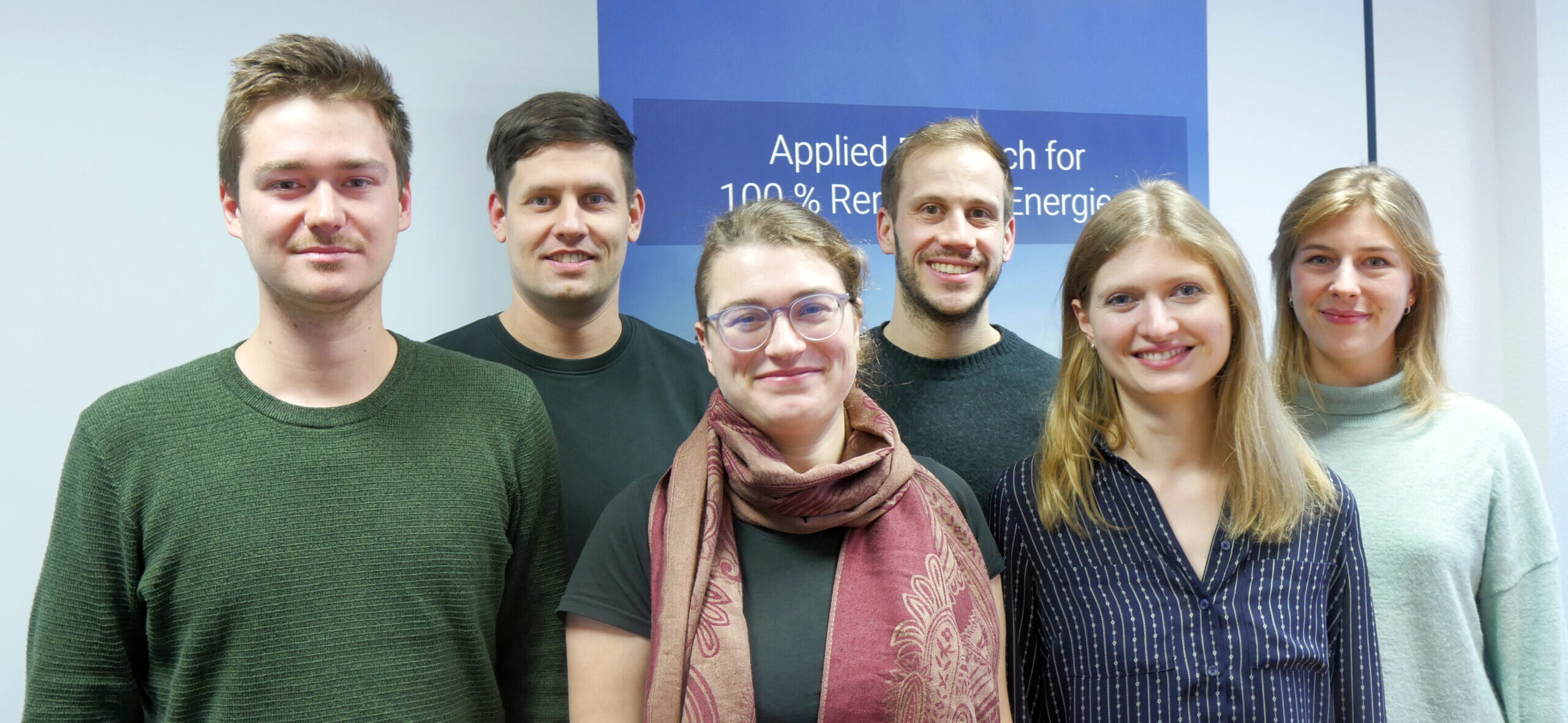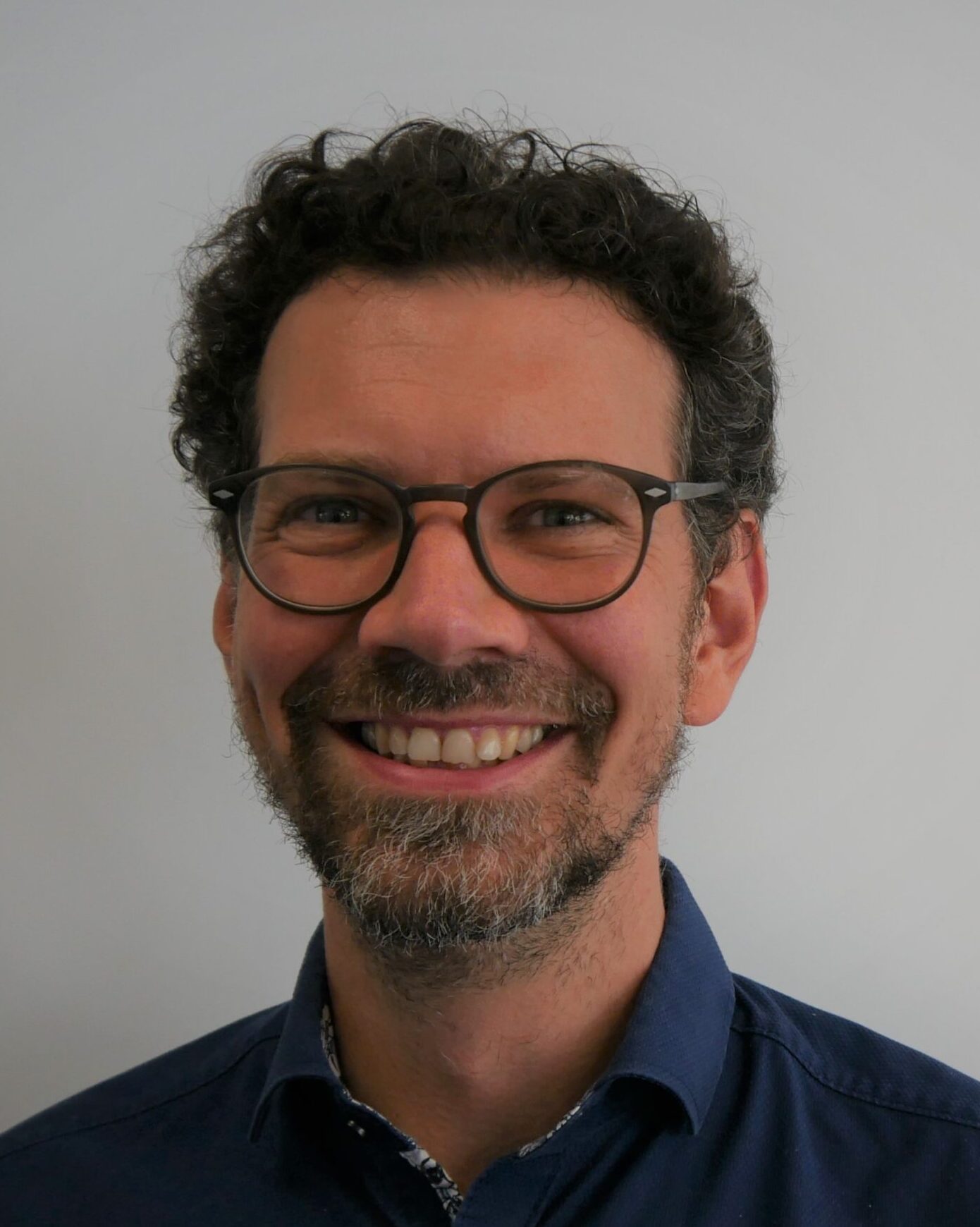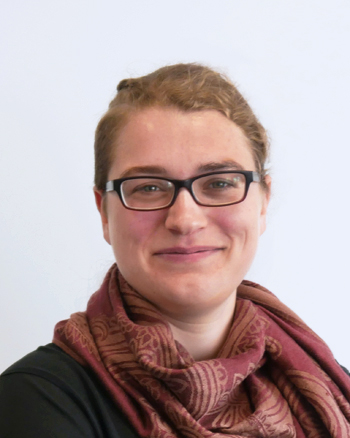RLS Graduate School
The RLS Graduate School started its work in January 2020 at the RLI. Since then, the team of currently six doctoral candidates has been conducting research on issues related to energy system transformation. They are funded by scholarships from the Reiner Lemoine Foundation. The team currently consists of five doctoral students: Philipp Diesing, Martha Hoffmann, Tabea Katerbau, Josephine Semb and Nubius Brandner. The Head of the Graduate School is Philipp Blechinger.
The RLS Graduate School was founded to better understand systemic obstacles to the energy transition and to research specific solutions in order to make an energy system with 100 % renewable energy possible. It works in a practice- and application-oriented manner and is supported by a network of experts.

The fellows of the RLS Graduate School: Philipp Diesing (f.l.t.r.) Ricardo Reibsch (Deputy Manager), Martha Hoffmann, Nubius Brandner, Tabea Katerbau and Josephine Semb.
Research Topics
Josephine Semb is doing her PhD in connection with the FossilExit Research Group at the Europa Universität Flensburg on the democratization of the heat transition. She is investigating various forms of public participation and their impact on acceptance. The aim is to shed light on how bottom-up-driven transformations can accelerate the energy system transformation.
Martha Hoffmann conducts her research in cooperation with the Europa-Universität Flensburg (EUF). She works on the realization of a socially just and accepted energy transition. For this, she plans to add social and ecological aspects to the current technical and economical focus within energy transition planning processes. The development of an integrated energy system model will assess the impact of energy market reforms on community and household level as well as their implications for distributive justice.
Nubius Brandner does his PhD in collaboration with the Potsdam Institute for Climate Impact Research (PIK) and the Technical University of Berlin analyzing the resilience of power grids in the face of increasing electricity demand and a growing threat from extreme weather events. He uses energy system models from theoretical physics to identify vulnerabilities in the power grid and examine measures for stabilization.
Philipp Diesing writes his dissertation in cooperation with the LUT University in Finland and deals with the defossilisation of the German manufacturing sector, specifically by examining the so-called Middle German Chemical Triangle in Saxony-Anhalt. The aim is to create future scenarios for this industrial region, taking into account social structures and technical and economic conditions, and to derive recommendations for action.
Tabea Katerbau is working on her doctorate on the contribution of energy communities to accelerating the energy system transformation. Her research focuses on the potential of energy communities to relieve the distribution grid, their economic viability and social equity. Among other things, an existing energy cell model is being expanded and load flow simulations are being conducted.
















